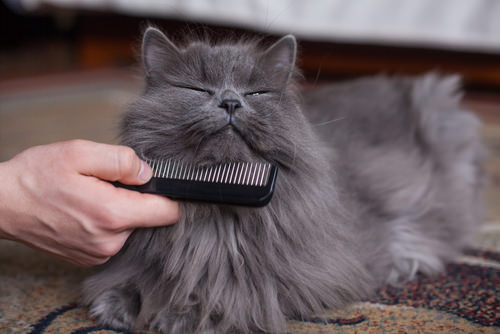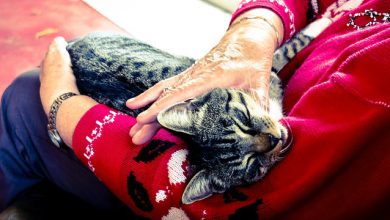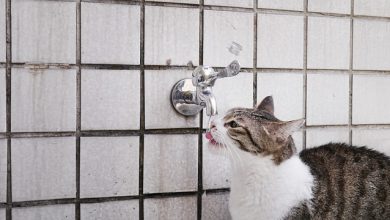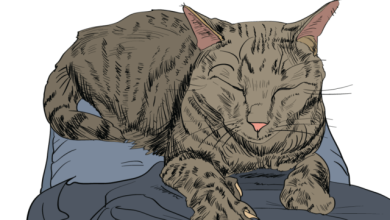
While long-haired cats may be beautiful, sometimes people are apprehensive to have one because of the extra work they might think will be involved. Long-haired cats have a certain appeal to them and if you look past the grooming, they can make a great choice for a companion.
Here are some helpful tips to keep those long-haired kitties looking marvelous 24/7:

1. The softer the coat, the more grooming required
This is a general rule of thumb that you can apply to long-haired cats. While some coats never seem to develop tangles, cats with softer and silkier coats seem to tangle easier and will require a bit more grooming. To properly upkeep and prevent against tangles that can become painful mats, daily brushing is recommended. And you will find that most cats enjoy being brushed or combed so don’t be surprised if you get a rise out of your cat each time you break out the grooming tool.
2. Older cats may need more assistance
Although cats are thought to be self-grooming, an older cat may have a trying time keeping their fur looking sharp. With age comes lack of energy and the task of grooming may prove too much of a chore for a tired, aging cat. Help them out with daily brushes so they can look and feel good all the time regardless of age.

3. Flat-faced cats may need help in hard to reach spots
Brachycephalic breeds, such as Persians and Himalayans, have distinct “pushed in” faces and will need assistance grooming the areas around their eyes to prevent from tear-staining and eye infections. If practiced routinely your cat should become accustomed and not seem to mind too much with repetition.
 Source: Helena Jacoba via Flickr
Source: Helena Jacoba via Flickr
4. Overweight cats need a little extra
If your cat is significantly large, they may have difficulty contorting their bodies to get those hard to reach places around their tail and buttocks. By helping them out with brushing in this area this works to eliminate the possibility of excess clumping or tangles. For heavier cats bathing might be a necessity to keep them sanitary and avoid the risk of infection.
 Source: Austin White via Flickr
Source: Austin White via Flickr
5. Bathing for your cat
Yes, it’s true that cats bathe themselves routinely, but giving your cat a bath about once per month may be needed to help with keeping kitty fresh. The more hair a cat has means more grooming, and for older or overweight cats they may need some extra help keeping themselves tidy. If you would like your cat smelling fresh all of the time, start from a young age implementing a bath into their routine so that they can get used to taking regular baths.
 Source: Nick Hewson via Flickr
Source: Nick Hewson via Flickr
6. No need to hire a professional
Contrary to what some might believe, grooming for long-haired cats can be done at home and doesn’t require professional grooming unless absolutely necessary. With regular grooming this will keep your cat looking great and not have to worry about being transported to the groomer–which if it’s anything like the vet, your cat will not be particularly fond of.
 Source: Jeff Oien via Flickr
Source: Jeff Oien via Flickr
7. More grooming by you, less hairballs for them
Every cat is prone to the occasional hairball, but with all that hair long-haired cats are more susceptible to these unpleasantries. Regular grooming will help reduce the number of hairballs a long-haired cat produces as their digestive systems can only break down so much hair at a time. Which will also be nice as cats love leaving these unsightly cat byproducts in the least desirable of places… directly under your feet where you walk.



